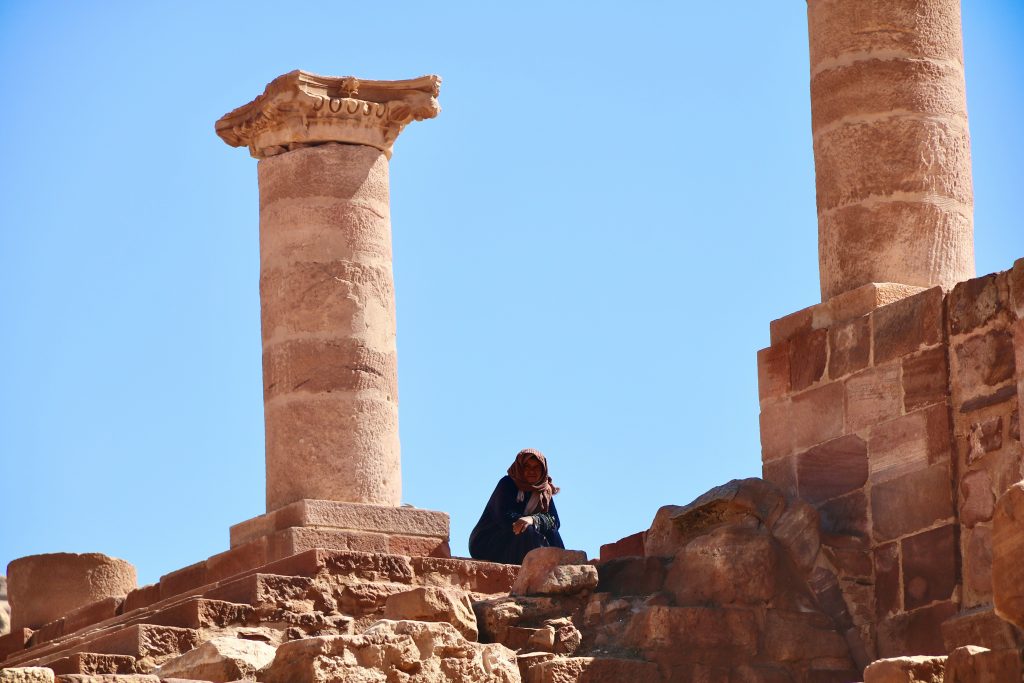
Photo by Nakie Hammock on Unsplash
There’s been a recent programme on Radio 4 called ‘Status’ by Carl Honore. https://www.bbc.co.uk/sounds/brand/m0021hc4 I was delighted to hear the topic raised and listened avidly. Honore argues that craving for status is an intrinsic part of being human; we are social animals and there is an inevitability in the conflict between our need to co-operate and our need to win. He argues that we are all aware of the craving for status but it’s a taboo subject. He calls out all the sneaky ways we find status for ourselves – the humble brag, (I just don’t understand how I won this award!) the complain brag, (I’m sleeping so badly right now, at this five star resort), virtue signalling, the weirdly inverted celebration of victimhood. It goes on and on. Humans are inventive creates and we can find endless ways of assigning status in the strangest of ways.
This isn’t new, of course. Years ago, when researching saints for a series of children’s books, I was much struck by the story of St Rosa of Lima. To deter suitors, the beautiful Rosa cut off her hair and blistered her skin with hot peppers. Her parents refused to let her enter a convent but compromised with her and allowed her to seclude herself in a hut in the garden where she lived a life of extreme austerity, regularly wearing a crown of thorns and self-flagellating, fasting and sleeping only a few hours each night on a bed of potsherds and, in some accounts, nettles. Given her life of privation and near starvation, it could be considered unsurprising that she experienced visions (hallucinations?), including of the Devil. Though she was largely a recluse, Rosa was devoted to the sick and hungry and often brought them to her hut to care for them. Her funeral was an occasion of public honour, and many miracles were said to have occurred after her death, resulting in her beatification. Her status, therefore, grew after her death. Young people have often told me that they want to be remembered after they die. Status after death is just as powerful a driver as status in the here and now, if not more so.

We might think that we are more enlightened and wouldn’t beatify Rosa but instead send her for therapy, given her propensity for self-harm and possible psychosis. We are still, however, perfectly capable of assigning status to the most bizarre behaviours, often masked by something more respectable. Take sport, for example. Behind the scenes, athletes adopt punishing training schedules, spurred on by coaches who, in another context would be called out for bullying and controlling behaviour – indeed, it’s beginning to be the case that they are. Take the case of Rebecca Achieng Ajulu-Bushell, for example, who dropped out of competitive swimming as a teenager, partly for those reasons, and has written about her experiences in her recent memoir ‘These Heavy Black Bones’. Or we can claim it’s ‘just for fun’, viz competitions to see who can eat the most hamburgers in the shortest space of time – or bog snorkelling!
Carl Honore’s thinks it’s a taboo topic – we all know about our need for status and are rather ashamed of it. As he says, ‘No one puts ‘brown-nosing’ on their CV as a core strength’. For him, the solution is to start being open about it and talking about it. I agree – that’s partly why I’m writing this blog. But I would go further.
I don’t accept the inevitability of a drive for status. Yes, it’s a human propensity but we have many drives that can do us harm, regardless of the fact that their fundamental purpose is to help us survive. Anger and fear are both obvious ones and can be harnessed for good or ill. The desire for status, I’d argue, is a bi-product of fear. If we can deal with the fear-factor, we may be able to be freed of our drive for status, which, to my mind, often underpins our addiction to achievement.
So what, deep down, are we scared of? I’m going to put my finger on meaninglessness. I had a young client who was feeling low, lacked motivation and saw life as pointless. Ultimately, the world would end so what was the point of anything we do? It’s not a new thought. Percy Bysshe Shelley had it nailed years ago in ‘Ozymandias’:
I met a traveller from an antique land,
Stand in the desert. . . . Near them, on the sand,
Who said—“Two vast and trunkless legs of stone
Half sunk a shattered visage lies, whose frown,
And wrinkled lip, and sneer of cold command,
Tell that its sculptor well those passions read
Which yet survive, stamped on these lifeless things,
The hand that mocked them, and the heart that fed;
And on the pedestal, these words appear:
My name is Ozymandias, King of Kings;
Look on my Works, ye Mighty, and despair!
Nothing beside remains. Round the decay
Of that colossal Wreck, boundless and bare
The lone and level sands stretch far away.

Photo by Jorge Fernández Salas on Unsplash
Some of us have faith that, in the eternal scheme of things, we do matter – that we are here for a purpose. We will be aiming to connect each day with our God or Gods and work out our lives accordingly. For some of us, that in itself will stress us out, if we are feeling that we can never do enough to justify our place here! But maybe that is better than the emptiness of believing that we don’t matter at all. It seems entirely reasonable to hold that horror at bay by shielding ourselves with a shiny array of achievements – that, at least, might make us feel less miserable than my young client.
A different approach might be that of Lao Tzu, that mysterious character who may or may not have existed and may or may not have written the Tao Te Ching.
Finding the Tao Te Ching has certainly been a revelation to me. I’ve been pondering it for about ten years now. Take this, for example, from Ursuala K Le Guin’s translation:
Not praising the praiseworthy
Keeps people uncompetitive
Not prizing rare treasures
Keeps people from stealing
Not looking at the desirable
Keeps the mind quiet….
When you do not-doing
Nothing’s out of order.
I think a lot of us would love a mind that is quiet, to feel that nothing is out of order. What is there to fear if we are in that state?
Like so much of the Tao, there is paradox here. What does it mean to ‘do not-doing’? It is, of course, also a paradox that our drive for status can be good for us but also very, very bad.
Readers of the Tao have been pondering these ideas for thousands of years and I certainly don’t have anything profound to add – indeed one translation reads: ‘The Tao that can be told is not the eternal Tao.’ But I do believe the ideas of the Tao might create a breakthrough for those trying to escape an addiction to achievement.




This is excellent Meg! You say that you don’t have anything more profound to add and the whole blog is very deep. One of the statuses that surprises me the most and one I suffered from is the status of victimhood. The wrong heritage from Christianity. Instead of taking love as our inheritance we took suffering and pain. If we cannot be heroes because of our heroic deeds let’s be heroes because we suffer. And I fear it is one of the causes for our increasingly disabled society, particularly amongst the Young. Disability has now a very high status, but we shouldn’t talk about it except in the politically correct way…. The other thing that really rings deeply, is the fear of meaninglessness, and all what we are prepared to do to mean something to someone. And of course you end up with the wisest of all the Tao te Ching “do not doing”. Thank you. It’s brilliant! Patrissia
Thanks Meg, much to ponder here, especially for one who’s toying with retirement but also wanting to keep writing and suspecting that creatives never really retire. However, when it comes to nothing being out of order, I fear you have failed this goal with the mangled version of Ozymandias here, where the lines are very definitely out of order! (Lines 2 and 3 have somehow got swapped). Time to go back and look at the original…